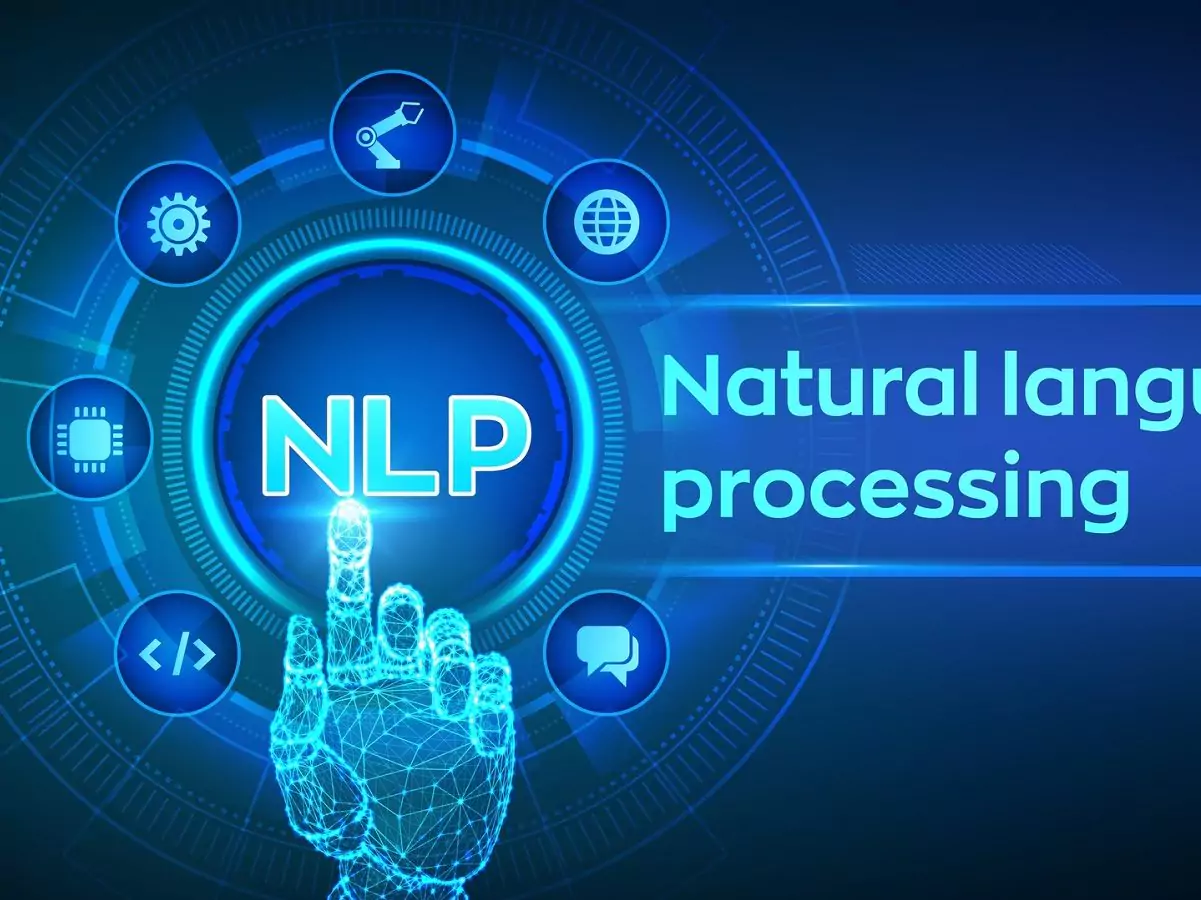Introduction
Search engines rely on their underlying algorithms to deliver the most relevant results to users. This drives top search companies to advance algorithms with natural language processing (NLP) techniques that can parse semantic meaning within queries.
According to Microsoft, 60% of search queries are now conversational, multi-intent questions rather than simply keywords. Enabling genuine comprehension requires models that can interpret language like humans.
NLP through machine learning models allow extracting entities, relationships and intents from queries. This data powers semantic search – understanding the underlying context and goals behind language.
Recent benchmarks show semantic algorithms achieve up to 46% higher accuracy at capturing user intent compared to legacy search approaches (Moz). Google itself reports over 70% of queries have multiple intents, proving NLP’s value. Facebook recently open-sourced Laser, its NLP framework that improved relevancy by 24%+ internally through semantic analysis.
NLP paves the path for more intelligent algorithms – and in turn, superior experiences that will shape consumer expectations. Harnessing its potential is now table stakes for leading search engines.
So continue reading to know more about improving search engine algorithms with NLP.

Understanding Natural Language Processing (NLP)
Natural Language Processing (NLP) is a branch of artificial intelligence that focuses on the interaction between computers and human language. It encompasses a variety of techniques and algorithms that enable machines to understand, interpret, and generate human language. NLP has applications in various fields, including search engines.
NLP plays a crucial role in improving search engine algorithms by enhancing their ability to understand the user's intent and context. This is particularly important as search engines evolve to better satisfy the needs of users, delivering more accurate and relevant search results.
Applications of NLP in Search Engine Algorithms
NLP techniques are used in several ways to improve search engine algorithms:
Keyword and Phrase Understanding
NLP helps search engines better decipher the meaning of keywords and phrases used in search queries. It goes beyond simple word-matching, taking into account the context, synonyms, and related concepts to provide more accurate results.
User Intent Analysis
Understanding the user's intent is crucial for search engines. NLP algorithms analyze the search query to determine the intent behind it. By understanding whether the user is looking for information, seeking a product, or aiming to perform a specific action, search engines can deliver more relevant results.
Contextual Search Queries
NLP enables search engines to interpret complex search queries by considering the context and relationships between words. This allows for a more nuanced understanding of user queries, resulting in improved search result accuracy.
Importance of NLP in Search Engine Algorithms
The importance of NLP in search engine algorithms cannot be overstated. With the ever-growing volume of digital content, traditional keyword-based algorithms struggle to provide accurate and relevant search results. NLP allows search engines to move beyond keyword matching and take into account the intricate details of human language.
By understanding the context, intent, and nuances of natural language, search engines can provide more personalized and contextually rich search results. This improves the overall user experience and increases user satisfaction with search engine performance.
How Natural Language Processing Improves Search Engine Algorithms
Natural Language Processing (NLP) techniques contribute significantly to improving the performance and effectiveness of search engine algorithms. By understanding the intricacies of human language, NLP enables search engines to provide more accurate and relevant search results to users.
Importance of Keywords and Phrases
Keywords and phrases are the foundation of search queries. NLP algorithms empower search engines to go beyond literal keyword matching by considering various factors such as context, synonyms, and word relationships.
By understanding the underlying intent behind the keywords and phrases used in search queries, search engines can deliver more precise and satisfactory search results. This shift from keyword-based algorithms to intent-based algorithms is made possible by the advancements in NLP techniques.
Identifying User Intent
Understanding the user's intent is crucial for search engines to provide accurate results. NLP techniques analyze the search query and extract the intent behind it, allowing search engines to tailor the results accordingly. This prevents situations where the search engine misinterprets the user's intent and delivers irrelevant or unrelated content.
NLP algorithms take into account not only the individual words but also how they work together within the search query. By deciphering the relationships and connections between these words, the algorithm can accurately determine the user's intent and provide relevant search results.
Contextual Search Queries
Context plays a fundamental role in language comprehension. NLP techniques enable search engines to understand the contextual nuances of search queries. This context-aware approach ensures that search engines consider the broader context within which the query is made, leading to more precise and targeted search results.
For example, if a user searches for "best restaurants," the NLP algorithm can consider factors such as the user's location, preferences, and past behavior to deliver personalized results. This improves the user experience by providing tailored recommendations based on individual contexts.
By incorporating NLP into search engine algorithms, these techniques enhance the understanding of user intent and context, resulting in improved search result accuracy.
NLP Techniques Used in Search Engine Algorithms
Natural Language Processing (NLP) encompasses a range of techniques that improve search engine algorithms' understanding of human language. These techniques empower search engines to analyze and interpret search queries more effectively, leading to better search result accuracy.
Word Stemming and Lemmatization
Word stemming and lemmatization are vital NLP techniques that help search engines understand different word forms and derive the root or base form of words. By reducing words to their core forms, search engines can collapse variations of a word into a single representation, enhancing search result accuracy.
For example, by stemming words like "running," "runners," and "ran" to their base form "run," search engines can ensure that relevant content is retrieved regardless of the specific word form used in the search query.
Sentiment Analysis
Sentiment analysis, also known as opinion mining, is a technique that allows search engines to discern the sentiment or emotion expressed within a piece of text. This technique is particularly useful when users search for reviews, opinions, or sentiment-driven information.
By analyzing the sentiment of text, search engines can determine the positive, negative, or neutral sentiment associated with specific entities, products, or topics. This enables search engines to deliver more accurate search results that align with the user's sentiment and preferences.
Named Entity Recognition
Named Entity Recognition (NER) is an NLP technique that identifies and classifies named entities within a text. Named entities can include names of people, organizations, locations, dates, and other proper nouns.
NER helps search engines extract meaningful information from search queries and content. By understanding the named entities mentioned in search queries, search engines can provide more relevant and contextually accurate search results.
Natural Language Generation (NLG)
Natural Language Generation (NLG) is an advanced NLP technique that enables computers to generate human-like text. In the context of search engine algorithms, NLG can be utilized to generate meaningful search result snippets or personalized recommendations.

By leveraging NLG capabilities, search engines can enhance the user experience by providing concise and informative summaries of search results. This helps users quickly assess the relevance and content of search results without having to click through multiple links.
These are just some of the many NLP techniques used in search engine algorithms. By harnessing the power of these techniques, search engines can improve their understanding of human language, resulting in more accurate and relevant search results.
Benefits of NLP-powered Search Engine Algorithms
The integration of Natural Language Processing (NLP) techniques into search engine algorithms brings several benefits that improve the overall user experience and search result accuracy.
Improved Accuracy of Search Results
By incorporating NLP techniques, search engine algorithms can better understand the context, intent, and nuances of search queries. This enhanced understanding leads to more accurate and contextually relevant search results for users.
NLP algorithms go beyond simple keyword matching, taking into account the broader meaning and relationships between words. This allows search engines to deliver more precise search results that align with the user's specific needs and intent.
Delivering Personalized Search Results
NLP-powered search engine algorithms enable personalization based on user preferences, behavior, and past interactions. By analyzing user data and search history, these algorithms can offer personalized recommendations, tailored search results, and relevant suggestions.
Personalized search results create a more engaging and satisfying user experience. Users receive information that is highly relevant to their interests, leading to increased user engagement and loyalty.
Enhanced User Experience
NLP techniques contribute significantly to enhancing the overall user experience with search engines. By understanding the user's intent, providing accurate search results, and analyzing sentiment, search engines can tailor the search experience to meet user expectations.
For example, by offering auto-complete suggestions, search engines powered by NLP algorithms can help users refine their search queries and find the desired information more efficiently.
Increased Customer Satisfaction
The accuracy and relevance of search results influence user satisfaction with search engines. NLP-powered search engine algorithms result in improved search result quality, leading to higher customer satisfaction.
By delivering search results that align with the user's intent and context, search engines can meet user expectations more effectively. This creates a positive user experience, increasing satisfaction and loyalty towards the search engine.
NLP-powered search engine algorithms bring numerous benefits, including improved search result accuracy, personalized experiences. It also enhanced user satisfaction, and a better overall search experience.
Conclusion
As search engines look to elevate relevance and provide smarter experiences, natural language processing offers a pivotal advancement path. With 60% of queries now conversational across intents based on Microsoft research, interpreting language like humans becomes critical. By extracting semantic meaning, NLP enables a shift from keyword matching to genuine understanding that unlocks next-generation search.
Early benchmarks substantiate the impact – semantic algorithms achieve over 45% higher accuracy in capturing user intent per Moz. Real-world results at scale are even more definitive – Facebook shared that its NLP framework Laser improved relevancy by over 24%. The data signals how transformative self-learning models can be for search relevancy and utility.
As AI capabilities grow more advanced, the applications of NLP for evolving search algorithms expand exponentially. We are entering an era where engines not only match search terms, but demonstrate human-like understanding of language and needs. Unlocking this future requires investing in semantic models today. For search players, building intelligence through conversational NLP paves the path to sustaining leadership through revolutionary improvements.
The next decade of possibilities start with prioritizing these advances now.
Frequently Asked Questions (FAQs)
Can you explain NLP and how it applies to search engines?
Natural Language Processing (NLP) is an AI method that enables machines to understand, analyze, and interpret human language. By applying NLP to search engines, algorithms can better understand user queries, leading to more accurate results.
What are some specific applications of NLP in improving search engine algorithms?
NLP can improve search algorithms through sentiment analysis, entity recognition, and semantic search. Additionally, it can interpret long-tail or complex user queries, improving results accuracy.
How does NLP benefit users searching through a search engine?
NLP can improve search results by providing more relevant options that accurately match user intentions. Users can expect faster, more accurate, and higher quality results thanks to NLP's implementation in search algorithms.
Are there any limitations to using NLP in search engines?
One limitation of NLP in search engines is the reliance on high-quality training data and quick analysis. However, recent breakthroughs in machine learning and AI models can help mitigate limitations and improve results.
What steps can search engine companies take to improve NLP accuracy further?
Search engine companies can improve NLP accuracy by investing in natural language knowledge bases, further refining machine learning models for accuracy, and investing in research initiatives to improve NLP algorithms for search engines.

